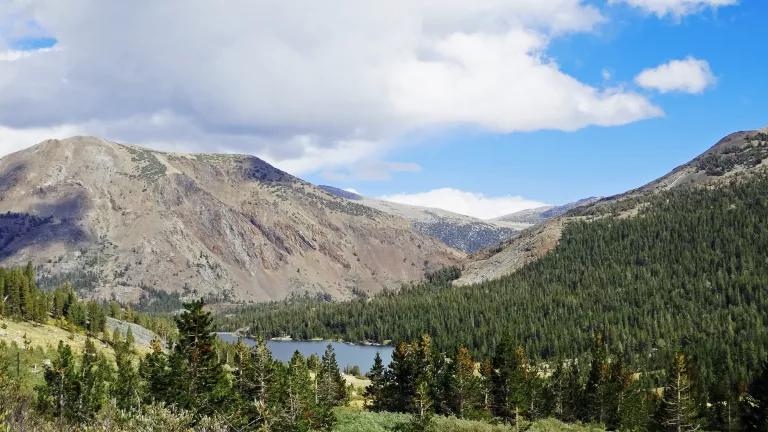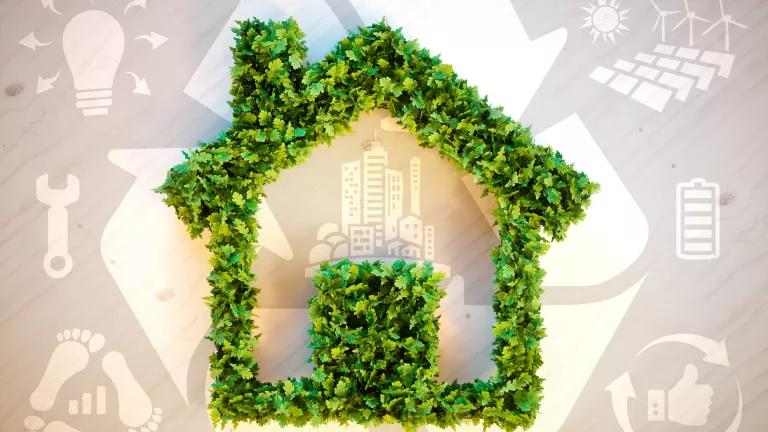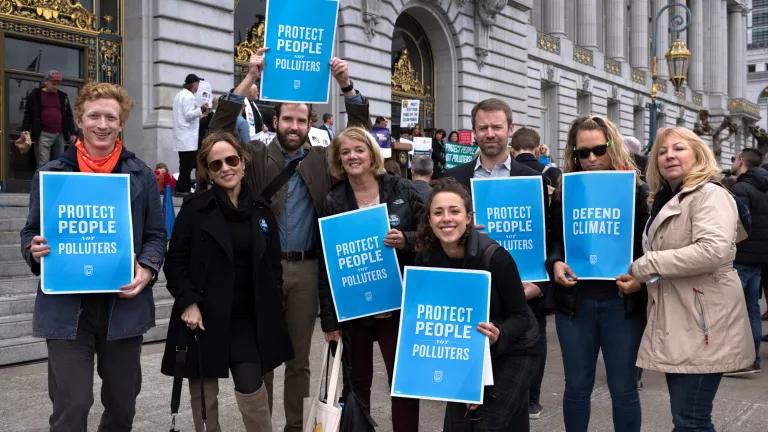California Legislative Roundup, August 2020
NRDC is focused on four bills in addition to contributing to efforts on a host of other pending bills to advance racial justice, economic recovery and public health.

Under California's Capitol Dome
The 2020 California legislative session has been completely upended by the COVID-19 pandemic and its economic fallout amid social unrest calling for racial justice. Several pieces of legislation were put on hold in the spring as the legislature focused on responding to the virus, supporting Californians, and finding ways to help dismantle systemic racism. But after suspending session for weeks due to public health concerns, hearings are again in full swing as lawmakers aim to process hundreds of bills by the Aug. 31 close of the session—two weeks away.
NRDC is focused on four bills in addition to contributing to efforts on a host of other pending bills to advance racial justice, economic recovery and public health.
Unfortunately, the oil industry and labor organizations teamed up to defeat one of our top priorities for public health and environmental justice, AB 345 by Assembly Member Muratsuchi. The bill failed to advance out of the Senate Natural Resources and Water Committee and won’t move forward this year. The bill would have required the oil and gas regulatory agency to establish a health and safety buffer zone between oil operations and schools, homes, and hospitals.
Buffer zones or “setbacks” are needed to protect Californians from the pollution and noise from oil and gas drilling and other operations and the state is lagging in establishing setbacks. The strong coalition of environmental justice, youth and health groups that’s formed to advocate for setbacks will continue the push to protect communities.
We urge the California Legislature to pass and send the following bills to Governor Newsom for his signature:
Protecting 30 percent of California’s land and waters: Scientists around the world are sounding the alarm about the loss of natural habitat and how it is contributing to the largest, fastest extinction event in human history. To help avert disaster, scientists and environmental organizations are pushing an effort to preserve 30 percent of the world’s lands, freshwater and oceans by 2030.
AB 3030 by Assembly Member Kalra would make California the first state to adopt that goal. California has already done a lot to protect land and water here making AB 3030’s goal more achievable.
The bill also addresses an important environmental justice issue: Communities of color are three times more likely than white communities to live in nature-deprived areas, and 70 percent of low-income communities don’t have accessible natural areas.
AB 3030 passed the Senate Natural Resources and Water Committee on August 12 but unfortunately didn't advance out of the Senate Appropriations Committee.
Banning PFAS chemicals in firefighting foam: Manmade PFAS chemicals—which contaminate drinking water systems that serve as many as 19 million California residents—have been linked to immune system dysfunction, cancer, liver damage and developmental issues, even at very low exposures. Researchers have found that firefighting foam is one of the largest sources of PFAS, or per- and polyfluoroalkyl substances. Firefighters face especially high exposures and risks on top of the dangers from fire that they take on as part of their job.
SB 1044 by Senator Allen would phase out the sale and use of firefighting foam containing PFAS chemicals in California, mandating a switch to available and effective PFAS-free firefighting foam. The bill passed the Senate with overwhelming, bipartisan support in June and is before the Assembly Appropriations Committee.
Healthy Schools and Clean Cars: Schools often have heating, ventilation, and air conditioning (HVAC) systems that are unhealthy for students and teachers and use excessive energy and water. To prevent spreading COVID-19 and reduce water and energy bills, AB 841 by Assembly Member Ting creates a program to repair and replace HVAC systems and water fixtures in schools while creating high quality green jobs. Additionally, this bill accelerates the infrastructure for zero-emission vehicles needed to combat air pollution and climate change.
Here are other bills that NRDC supports:
Health and Toxics
AB 995 (C. Garcia) Broadly reforms the Department of Toxic Substances Control
AB 2043 (R. Rivas) Protects agricultural workers during the COVID-19 crisis
AB 3262 (Stone) Protects consumers by holding online marketplaces liable for defective and dangerous products
Recovery
AB 1436 (Chiu) Prevents evictions of renters during the COVID-19 crisis
Climate and Transportation
AB 326 (Muratsuchi) Makes electric vehicles more accessible by creating the framework for a subscription-based EV leasing model
SB 1320 (Stern) Requires development of the California Climate Change Assessment at least every five years
Oceans, Lands and Wildlife
SB 54 and AB 1080 (Allen and Gonzalez): Reduces single-use plastic packaging by 75 percent by 2032
AB 1426 (Boerner Horvath) Protects San Onofre State Park from a new road
AB 3214 (Limón) Increases fines and penalties for knowingly spilling oil into state waters
Racial Justice
AB 2054 (Kamlager) Enacts the Community Response Initiative to Strengthen Emergency Systems Act to encourage community-led emergency response when law enforcement officers aren’t necessary.
ACA 5 (Weber) Placed a measure on the November ballot, Proposition 16, to reinstate affirmative action policies
There is also one bill that NRDC opposes, AB 3163 by Assembly Member Salas, because it would divert focus away from zero-emission energies and enable a new, costly source of methane to be created, sold and burned by converting wood into methane gas.
Despite multiple crises that no one could have foreseen, California is looking to the future and finding ways to make progress on public health, climate and environmental protection.


